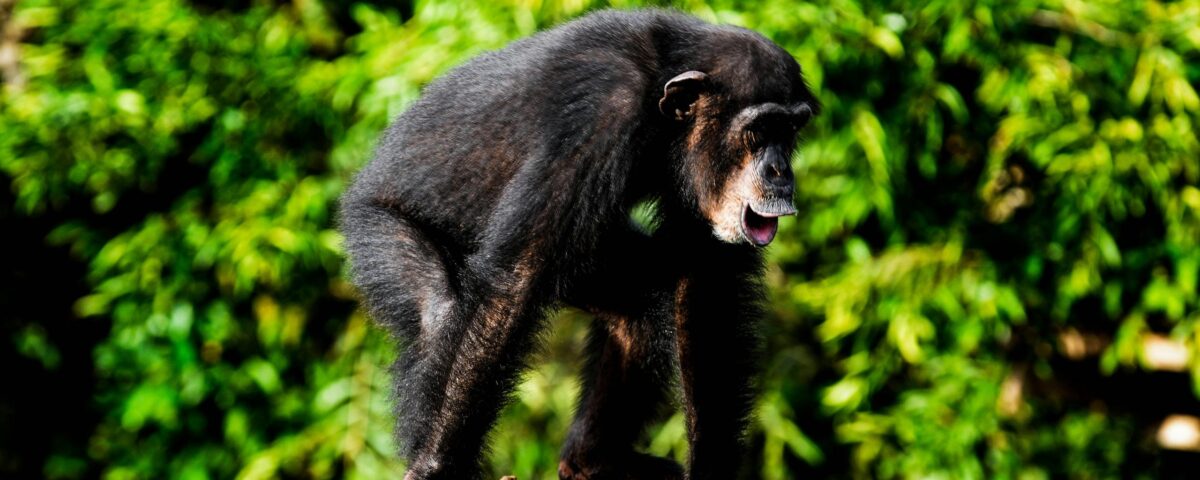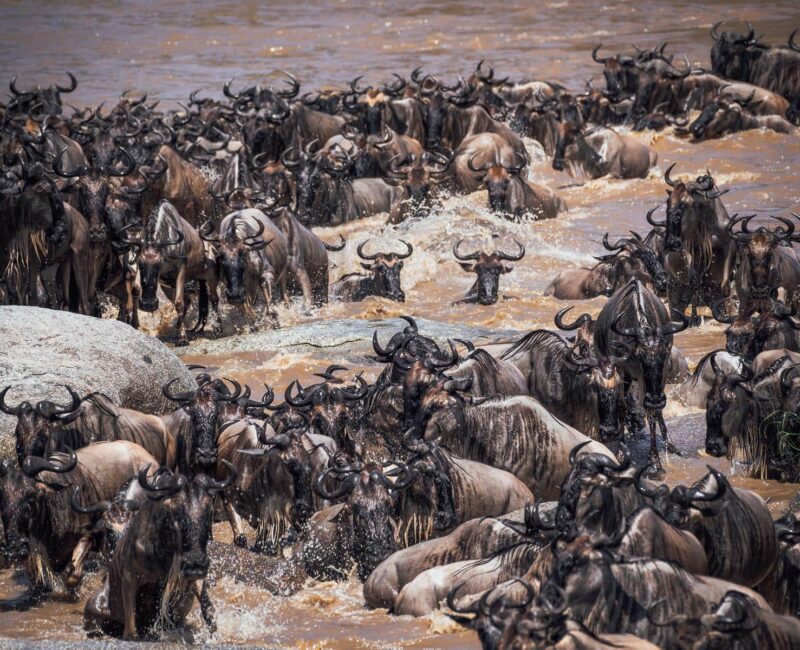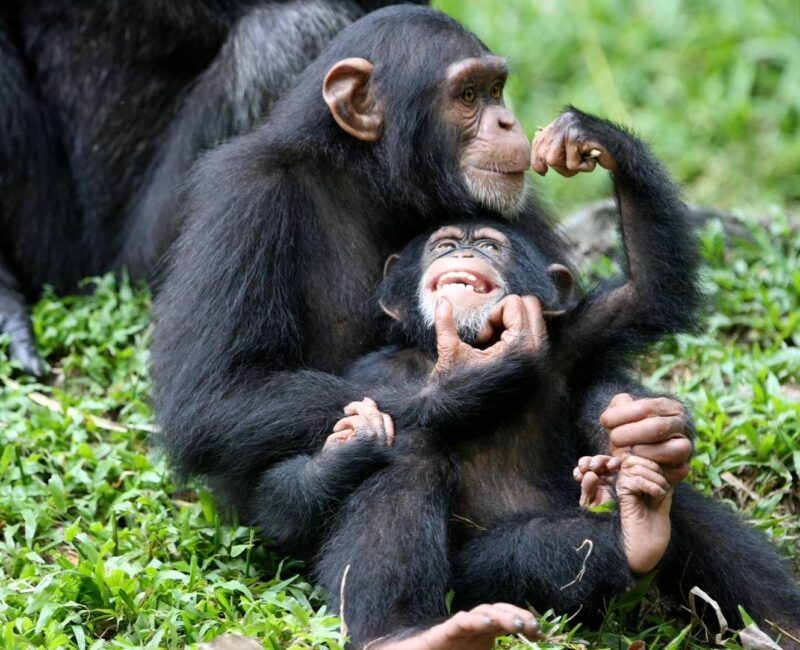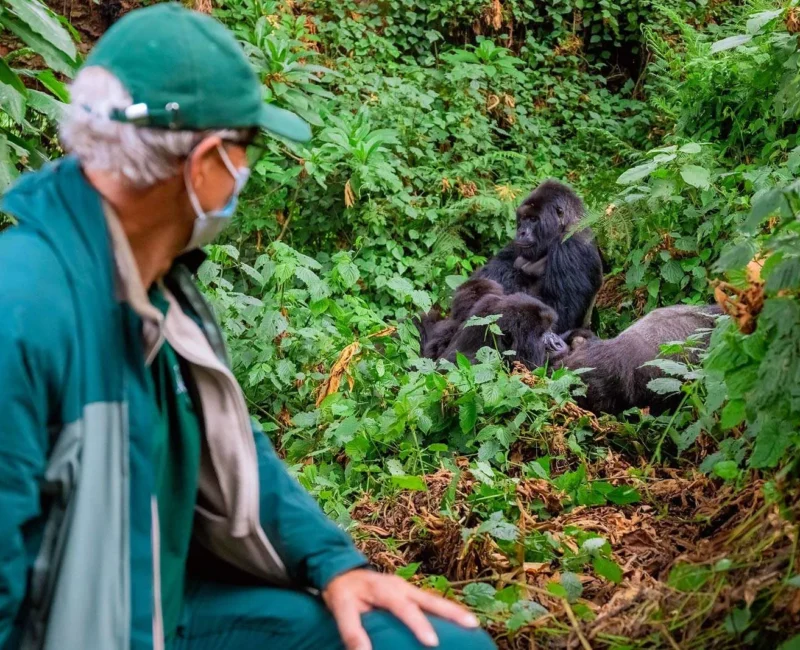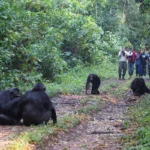
Are There Age Restrictions for Chimpanzee Tracking in Uganda?
September 11, 2025
Are There Luxury Walking Safari Options in Uganda?
September 12, 2025Are There Chances of Not Finding Chimpanzees During Tracking?
Are there chances of not finding chimpanzees during tracking, and what should travelers expect when embarking on a Uganda Chimpanzee Safari? Uganda is one of the most exceptional destinations for wildlife experiences, offering Uganda Wildlife Safaris, Uganda Gorilla Trekking Safaris, Uganda Birding Safaris, and Uganda Cultural Safaris. Among these, chimpanzee tracking in forests such as Kibale Forest National Park, Budongo Forest Reserve, and Ngamba Island Chimpanzee Sanctuary is a sought-after adventure for wildlife enthusiasts and conservationists alike.
Introduction: Understanding Chimpanzee Tracking in Uganda
Chimpanzee tracking is inherently unpredictable because it involves observing wild animals in their natural habitats. While these experiences are meticulously organized, no safari can guarantee a sighting, as chimpanzees move freely in search of food, water, and social interactions. Understanding the dynamics of their behavior, habitat, and the forest environment helps travelers appreciate why occasional non-sightings can occur. EcoQuest Safaris ensures that every Uganda Chimpanzee Safari is guided by highly trained experts who optimize tracking chances while emphasizing respect for wildlife and safety.
This unpredictability adds an element of excitement and authenticity to the safari. Combining chimpanzee tracking with other experiences, such as Uganda Gorilla Trekking Safaris or Uganda Birding Safaris, allows travelers to enjoy a diverse range of wildlife encounters. Asking, “Are there chances of not finding chimpanzees during tracking?” helps travelers set realistic expectations, prepare adequately, and embrace the adventure with a deeper understanding of Uganda’s rich biodiversity.
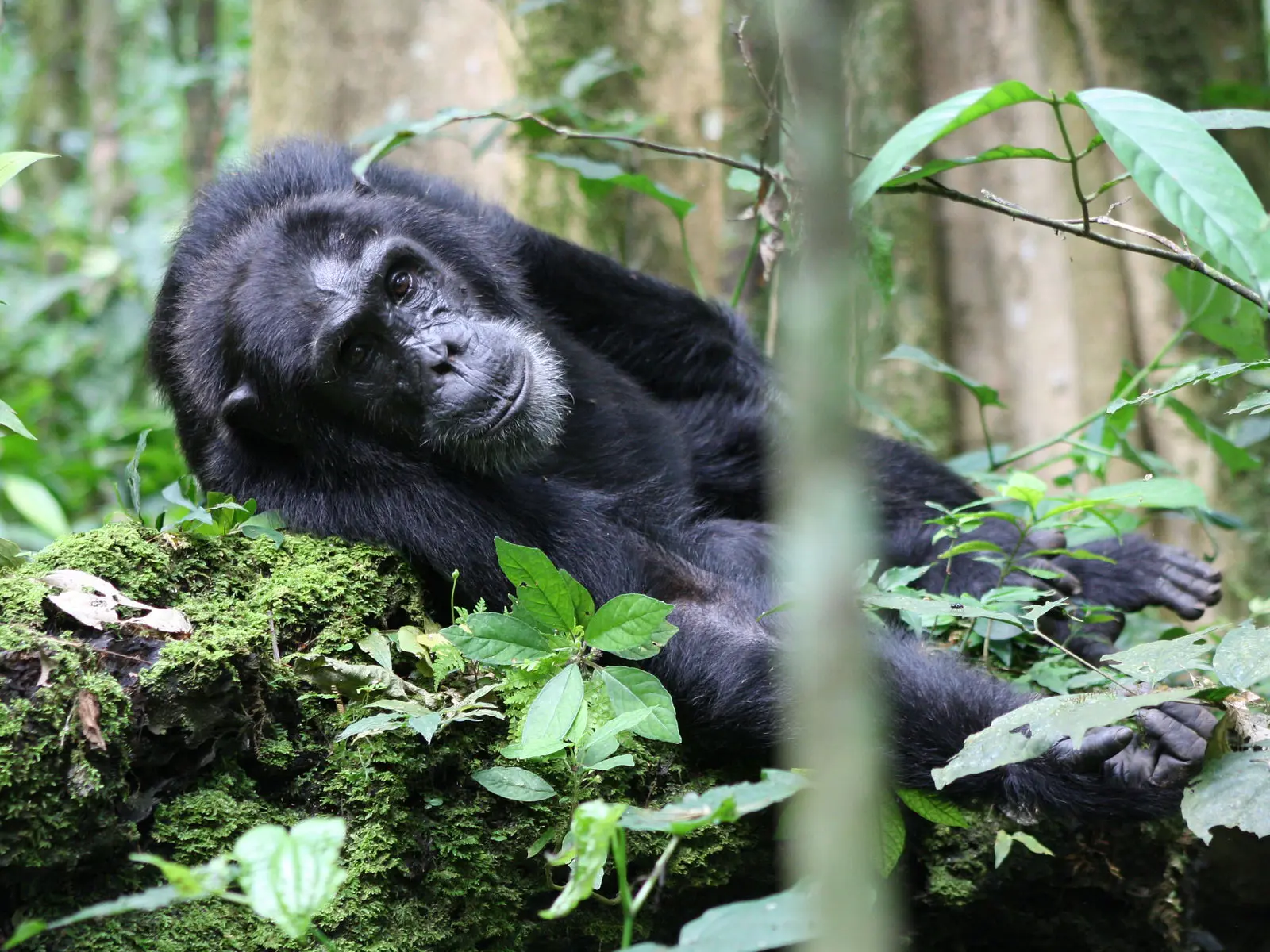 Why Chimpanzee Sightings Can Be Unpredictable
Why Chimpanzee Sightings Can Be Unpredictable
Are there chances of not finding chimpanzees during tracking because of their natural behavior? Yes, chimpanzees are wild primates, and their daily movements are influenced by factors such as food availability, group dynamics, and seasonal changes. Unlike gorillas, which may have more predictable ranges, chimpanzees roam large territories in search of fruits, leaves, and insects, making sightings subject to natural variability.
EcoQuest Safaris emphasizes that tracking is both a skill and an art. Experienced guides read subtle signs such as broken branches, footprints, vocalizations, and feeding traces to locate chimpanzee groups. Despite these efforts, there is always a chance that chimpanzees may not appear during a scheduled tracking session. This unpredictability highlights the importance of choosing an expert operator who understands forest ecology and chimpanzee behavior.
Travelers should also consider external factors such as weather, terrain, and forest density. Heavy rains can affect visibility and movement within forests like Kibale, while dry conditions may concentrate chimpanzees around water sources, increasing spotting chances. Combining Uganda Chimpanzee Safaris with Uganda Gorilla Trekking Safaris or Uganda Birding Safaris ensures a balanced safari itinerary, providing multiple wildlife experiences that reduce the risk of disappointment and increase overall satisfaction.
How Guides Increase Chances of Chimpanzee Sightings
Are there chances of not finding chimpanzees during tracking, and how do guides maximize success? EcoQuest Safaris employs highly trained trackers and guides who possess extensive knowledge of chimpanzee behavior, forest ecosystems, and local topography. Their expertise significantly improves the probability of sightings while maintaining the safety of both travelers and wildlife.
Guides use a combination of observational skills, historical tracking data, and understanding of chimpanzee social structures to predict movements. For example, tracking groups with infants may require a more cautious and patient approach, as mothers with babies move slowly and avoid stress. Other groups may follow seasonal feeding patterns, moving between fruiting trees or water sources. By interpreting these cues, guides can lead travelers to likely locations without disturbing the animals.
Additionally, guides provide in-depth education during the trek, enhancing the safari experience even if chimpanzees are not immediately visible. Visitors learn about forest ecology, chimpanzee communication, and conservation strategies. Combining these insights with Uganda Gorilla Trekking Safaris or Uganda Birding Safaris allows travelers to gain a full understanding of Uganda’s ecosystems and wildlife diversity. Therefore, while there are chances of not finding chimpanzees during tracking, expert guidance ensures a highly rewarding and educational safari experience.
Seasonal and Environmental Factors Affecting Chimpanzee Tracking
Are there chances of not finding chimpanzees during tracking because of seasonal or environmental factors? Absolutely. Chimpanzee movement patterns vary with the seasons, food availability, and rainfall. During the rainy seasons (March–May and September–November), dense vegetation may obscure visibility and limit trekking access. Conversely, during the dry seasons (June–August and December–February), trails are more accessible, and chimpanzees may congregate near water sources, improving sighting chances.
Forest terrain also affects tracking success. Dense undergrowth, steep slopes, and riverine areas can limit movement and visibility, requiring patience and stamina from trekkers. EcoQuest Safaris prepares travelers with detailed guidance on what to expect, including trekking difficulty, suitable clothing, and essential equipment. Proper preparation ensures that even if chimpanzees are not immediately found, travelers enjoy the journey, learn about forest ecology, and engage in Uganda Birding Safaris or smaller wildlife observations along the way.
By understanding these environmental influences, travelers can appreciate the unpredictability of tracking as part of the authentic Uganda Chimpanzee Safari experience. Combining chimpanzee tracking with Uganda Gorilla Trekking Safaris or Uganda Wildlife Safaris maximizes overall safari value, offering multiple chances for unforgettable wildlife encounters.
Planning for a Successful Chimpanzee Tracking Safari
Are there chances of not finding chimpanzees during tracking, and how can travelers plan to mitigate disappointment? Effective planning is key to a successful safari. EcoQuest Safaris recommends booking multiple tracking days in parks like Kibale Forest National Park, which increases the likelihood of sightings and allows time to explore surrounding wildlife and birding areas. Early morning treks are often most successful, as chimpanzees are active and foraging during cooler hours.
Travelers should also combine chimpanzee tracking with complementary safari activities. Uganda Gorilla Trekking Safaris in Bwindi Impenetrable Forest or Mgahinga National Park provide another iconic primate experience, while Uganda Birding Safaris and Uganda Wildlife Safaris in nearby national parks expand the diversity of wildlife encounters. Including cultural experiences, such as visiting Batwa communities, provides additional value, showcasing human connections to the forest ecosystem.
EcoQuest Safaris ensures that all logistics, including permits, transportation, and guiding, are professionally managed. Travelers are briefed on what to expect, including the possibility of not spotting chimpanzees immediately, fostering realistic expectations. Through careful planning, preparation, and expert guidance, the safari remains highly rewarding regardless of immediate sightings, reflecting the reliability and authority of EcoQuest Safaris in Uganda’s tourism industry.
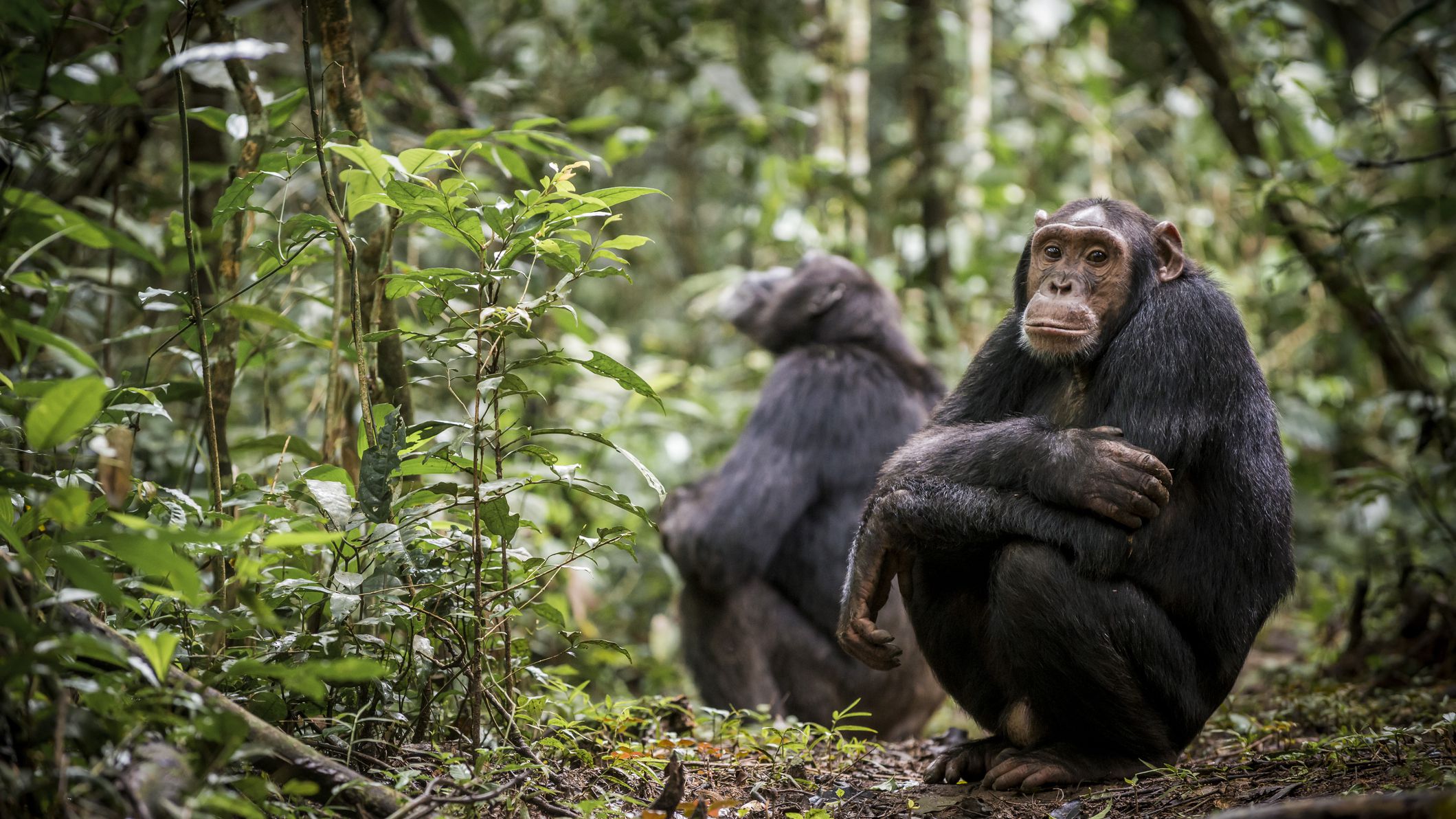
Chimpanzee Tracking in Kibale Forest National Park
The Educational Value of Chimpanzee Tracking
Are there chances of not finding chimpanzees during tracking, and how does this affect the educational aspect? Even when chimpanzees are elusive, the tracking experience provides unparalleled opportunities for learning. Guides share knowledge about forest ecology, species interactions, conservation challenges, and the impact of human activity on chimpanzee habitats. This educational dimension transforms the safari into more than just a wildlife viewing trip; it becomes an immersive conservation experience.
Visitors observe indirect signs of chimpanzees, such as nests, footprints, feeding sites, and vocalizations, gaining insight into their daily routines and social structures. This complements experiences in Uganda Birding Safaris, where tracking and observing birds teaches about migratory patterns, ecological roles, and forest health. Combining chimpanzee tracking with Uganda Gorilla Trekking Safaris enhances the educational component, allowing travelers to understand primate diversity, behavior, and conservation strategies.
EcoQuest Safaris emphasizes that wildlife unpredictability is part of what makes these safaris authentic and memorable. Each observation, whether direct or indirect, contributes to a broader understanding of Uganda’s ecosystems, making the question, “Are there chances of not finding chimpanzees during tracking?” a gateway to appreciating the complexity and richness of the forest environment.
Cultural Encounters Alongside Chimpanzee Tracking
Are there chances of not finding chimpanzees during tracking, and how can cultural experiences enrich the safari? Combining chimpanzee tracking with Uganda Cultural Safaris ensures a rewarding and holistic adventure, even if direct chimpanzee sightings are limited. Many communities near national parks, including the Batwa people, have coexisted with chimpanzees for generations, possessing traditional knowledge about the forest and its inhabitants.
Visitors can engage in cultural activities such as traditional dances, craft-making, storytelling, and learning about sustainable land-use practices. These experiences highlight the intersection of wildlife conservation and human livelihoods, fostering appreciation for local stewardship of chimpanzee habitats. By integrating cultural visits with Uganda Chimpanzee Safaris and Uganda Gorilla Trekking Safaris, travelers enjoy a comprehensive safari that balances wildlife observation, education, and cultural immersion.
EcoQuest Safaris designs itineraries that maximize these opportunities, ensuring that the journey remains enriching even if wildlife sightings are unpredictable. This approach reinforces Uganda’s position as a top safari destination, demonstrating both expertise and authority in responsible tourism practices.
Conclusion: Embracing the Unpredictability of Wildlife
In conclusion, are there chances of not finding chimpanzees during tracking? Yes, chimpanzee tracking is inherently unpredictable because it involves observing intelligent, free-roaming wild animals. Factors such as seasonal movements, food availability, weather, and forest density all influence sightings. However, with expert guidance from EcoQuest Safaris, careful planning, and complementary experiences like Uganda Gorilla Trekking Safaris, Uganda Birding Safaris, Uganda Wildlife Safaris, and Uganda Cultural Safaris, travelers can enjoy an unforgettable and educational safari experience.
Understanding that wildlife sightings cannot be guaranteed encourages travelers to appreciate the broader experience: tracking signs, observing other wildlife, engaging with local communities, and learning about conservation. Combining multiple safari activities maximizes the value of each trip, making Uganda a world-class destination for immersive wildlife and cultural experiences.
By asking this question, travelers set realistic expectations while opening themselves to authentic encounters with nature and people. EcoQuest Safaris ensures that every safari embodies expertise, authority, and trustworthiness, allowing visitors to fully embrace the magic and unpredictability of Uganda’s forests while gaining lifelong memories and insights into wildlife conservation.

